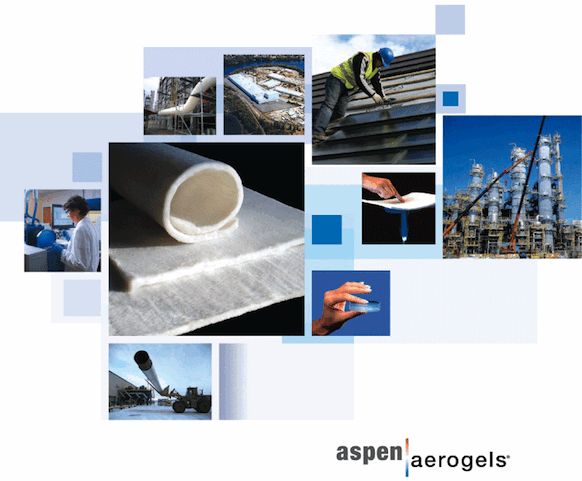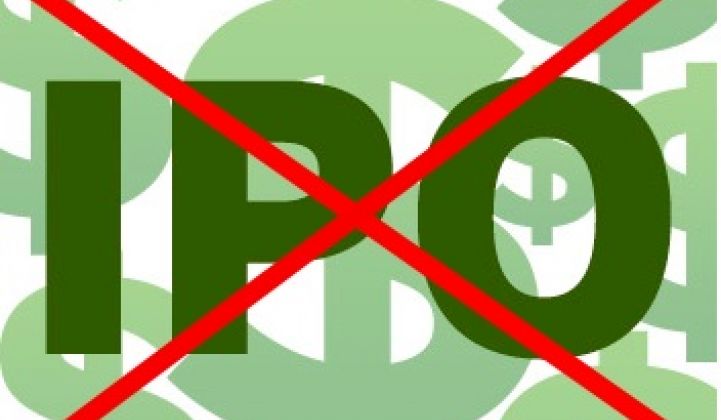Aspen Aerogels, a Massachusetts-based maker of flexible aerogel insulation materials, just withdrew its registration for a $115 million IPO and turned to private markets to raise $12 million in debt, according to an SEC filing.
Aspen is an energy efficiency firm which designs and builds high-performance aerogel insulation.
Aerogels are complex strands of silica that capture air or molecules and have been the world’s best form of insulation for decades. A centimeter of aerogel insulation works as well as 10 centimeters of regular insulation, saving time and architectural space. But to date, the material has only been able to penetrate niche markets because of its high cost.
We reported on the original IPO filing back in July 2011 here. The original VC and corporate investors included Rockport Capital, BASF Venture Capital, Tenaya Capital, Reservoir Capital Group, Arcapita Ventures and Argonaut Private Equity. Aspen has raised more than $100 million in private equity and debt.
Aspen's insulation can be used in industrial applications ranging from -270 degrees C to 650 degrees C, as well as in wall systems for commercial and residential buildings and applications such as piping, vessels, tanks and equipment.
Excerpts from the Aspen Aerogels S-1:
- Our technologically advanced products are targeted at the estimated $32 billion annual global market for insulation materials. Our insulation is principally used by industrial companies, such as ExxonMobil and NextEra Energy, that operate petrochemical, refinery, industrial and power generation facilities. We are also working with BASF Construction Chemicals and other leading companies to develop and commercialize products for applications in the building and construction market.
- Our aerogels are complex structures in which 97% of the volume consists of air trapped in nanopores between intertwined clusters of amorphous silica solids. These extremely low-density solids provide superior insulating properties. Although aerogels are usually fragile materials, we have developed innovative and proprietary manufacturing processes that enable us to produce industrially robust aerogel insulation cost-effectively and at commercial scale.
The most recent amended S-1 form filed by Aspen dates back to September 2011, so 2102 revenues have not been shared. The company lost $67 million on sales of $39 million in 2010.
Although the company sizes its available market at $32 billion, the market for insulation is fragmented and diverse. The primary markets for insulation are: industrial, including use as covering for pipes, valves and storage tanks; building and construction, in walls, floors and ceilings; and original equipment manufacture, including use in transportation, appliances and apparel applications.
A fragmented market with multiple sales channels is difficult for a small company to address. And that is one of the likely contributors for this withdrawn IPO. The company has not responded to GTM inquiries.
Greentech IPOs have had mixed results over the last few years. There was a wave of development-stage biofuel firms, including Kior, Codexis, and Amyris. Then Tesla, Enphase, and SolarCity made it through the IPO window -- and stock prices of those three firms have revived or exploded in the last few weeks. Mascoma and Genomatica, both biofuels firms, pulled their IPOs, as did Luca and Enerkem. BrightSource Energy, the solar thermal firm, withdrew its S-1 last year after tepid reaction from institutional investors, but continues its slog with private funding. Intematix and iWatt filed S-1 IPO registrations within the last year, as well.




